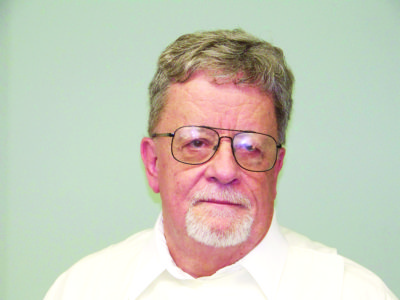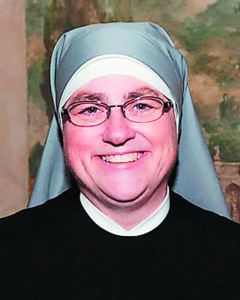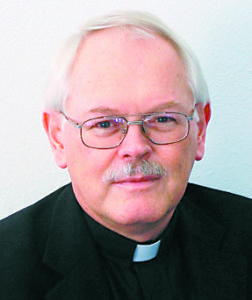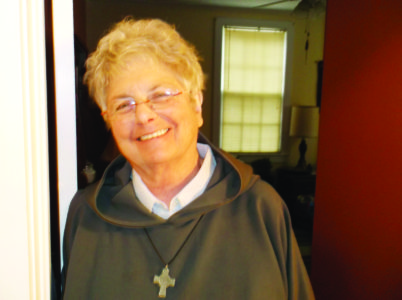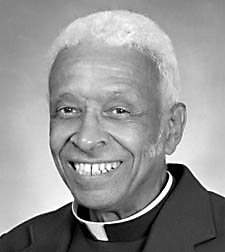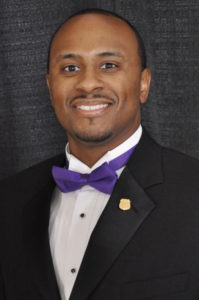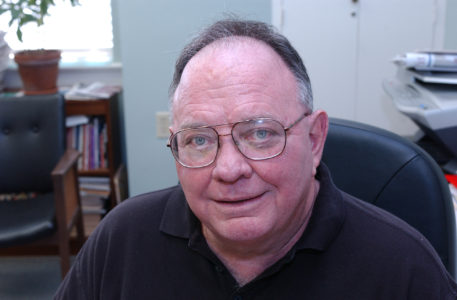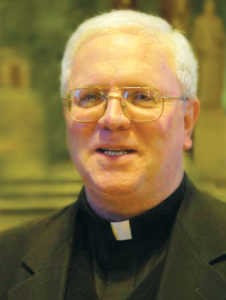
Father Ed Dougherty
Light one candle
Father Ed Dougherty, M.M.
St. Paul wrote, “I have learned to be content with whatever I have. I know what it is to have little, and I know what it is to have plenty. In any and all circumstances I have learned the secret of being well-fed and of going hungry, of having plenty and of being in need. I can do all things through Him who strengthens me.” (Philippians 4:11-13)
The secret of contentedness that St. Paul refers to is all about having gratitude to God for the gift of life itself. One particular story exemplifying this kind of gratitude is that of Justin Skeesuck and Patrick Gray, two life-long friends who traversed the 500-mile Camino de Santiago pilgrimage trail in northern Spain despite Justin’s confinement to a wheelchair.
“I’ll Push You” is a documentary chronicling Justin and Patrick’s journey across the Camino, and earlier this year the book version of their story won a Christopher Award. “I’ll Push You” details their harrowing yet joyful trek along rocky and sometimes muddy trails, over mountains, and down winding roads to reach Santiago de Compostela.
At one point in their journey, Justin says, “You know, it’s inevitable we all die at some point. But I’m making the best of it now.” Suffering from a rare autoimmune disease that has left him paralyzed and uncertain how long he will live, Justin must allow Patrick to push, pull and carry him all the way to Santiago de Compostela, where their wives await them after being apart for several weeks.
They cross mountain ranges, pass through old world cities like Pamplona and Leon, follow trails through vineyards, and make pit stops at ancient Cathedrals and monasteries.
Justin talks about the difficulty of having to rely on the assistance of Patrick and other generous travelers who help along the way, but then later he shares a profound realization, saying, “When you deny someone that opportunity to help you, you deny them the joy in life.”

I’ll Push You
Padre Pio once said, “In all the events of life, you must recognize the Divine will. Adore and bless it, especially in the things which are the hardest for you.” He meant that God can draw good out of all things, and Justin’s realization demonstrates his recognition of the good being drawn from his suffering.
Reflecting on the natural desire for independence that his condition has forced him to let go of, Justin says, “Once I’ve let that go, love can flourish and there’s this weird beauty that lies around that.” Understanding the insight this love has brought to him, he says, “I’d love to have my independence back, but I’m kind of wondering, if I got that back, would my life change and would love change, in that aspect? And would I trade it for that? I’m not so sure.”
Justin’s gratitude for the gift of life regardless of his condition sets an example for us all. He has achieved that state that St. Paul speaks of in terms of knowing how to live with abundance as well as sacrifice.
When we begin to appreciate life in all its stages — the joys and sorrows, pleasures and pains, moments of triumph and even defeat — we realize that God is utilizing all our experiences to draw us closer to His love. So embrace every moment of life with a heart open to transformation, and you will be content in knowing that God is leading you through it all to a state of everlasting joy.
(For free copies of the Christopher News Note THE ENDURING VALUE OF PEOPLE WITH DISABILITIES, write: The Christophers, 5 Hanover Square, New York, NY 10004; or e-mail: mail@christophers.org.)

